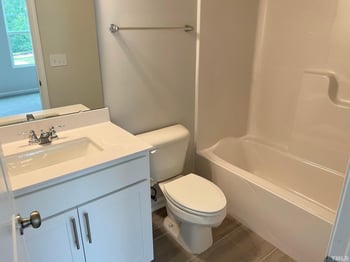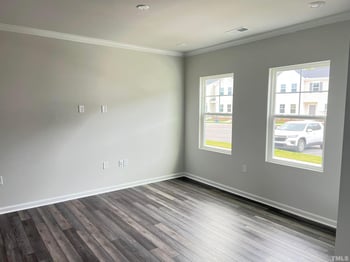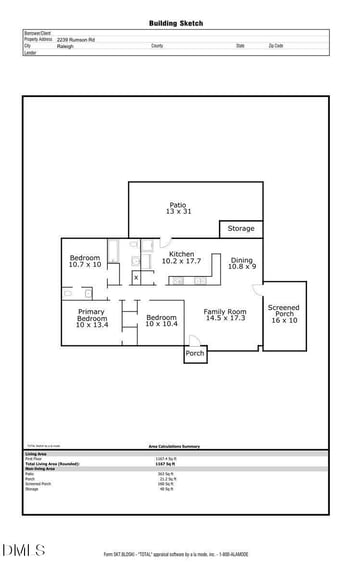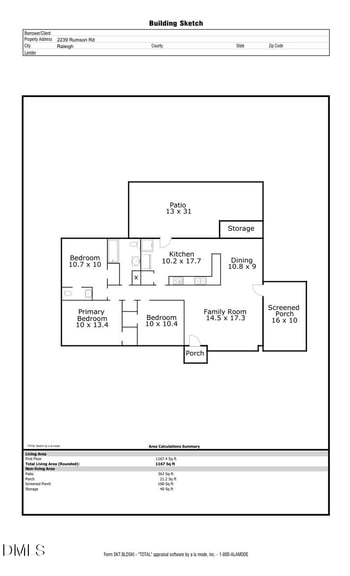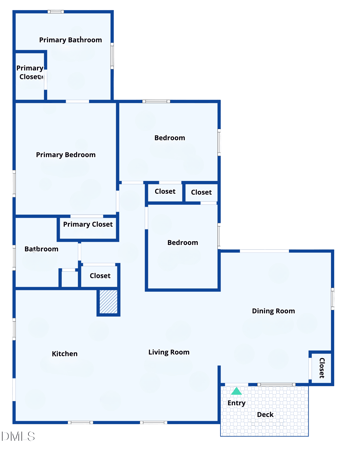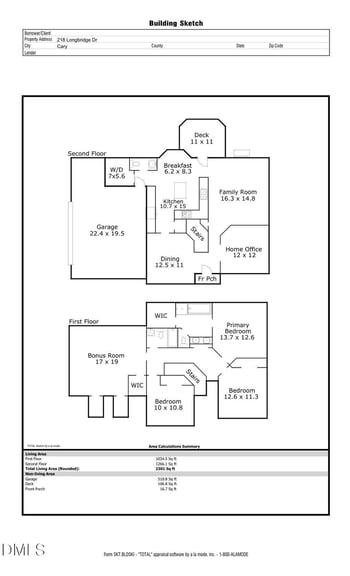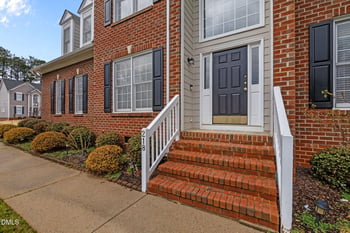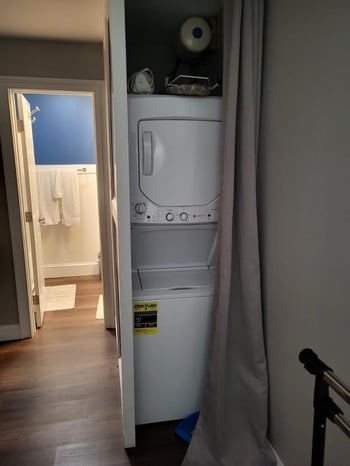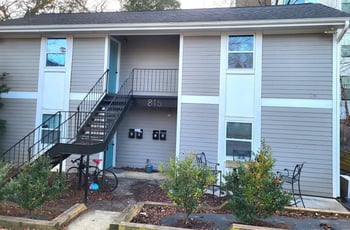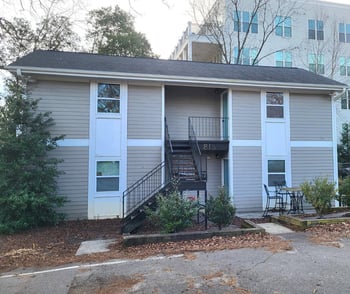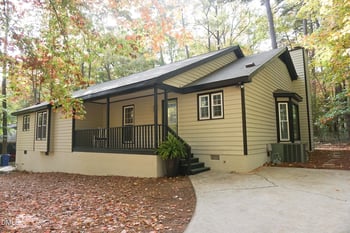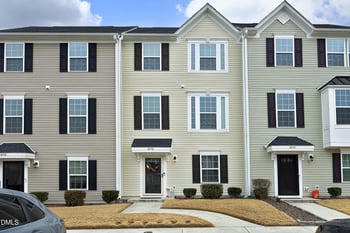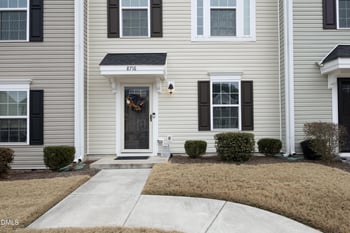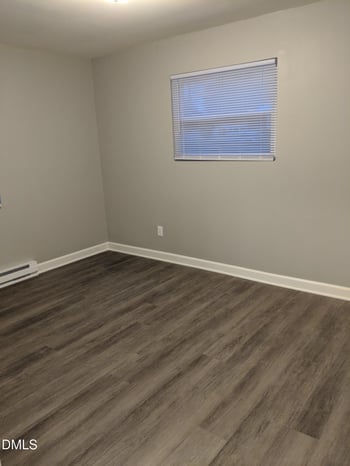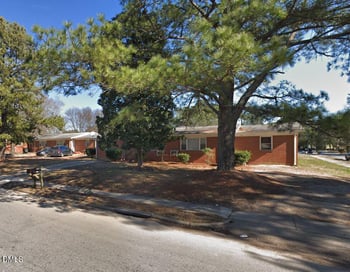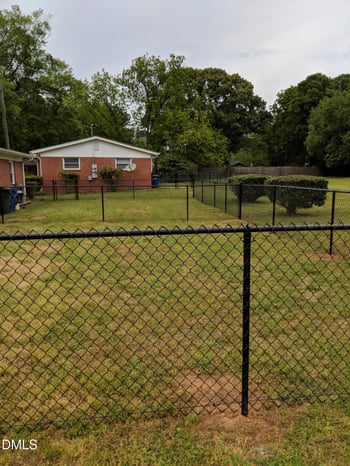Is It Cheaper to Live in Cary or Raleigh?
Are you considering a move between Cary and Raleigh, NC? Here is all you should know about the affordability and cost of living in Cary and Raleigh.
Choosing between Cary and Raleigh for your next home is one of the most common decisions facing newcomers to the Triangle area. Both cities offer unique advantages, but understanding the financial implications of each choice can help you make the right decision for your family's budget and lifestyle.
Cary, a suburb of Raleigh, is growing rapidly and catching up to the state capital. Both are considered to be among the best places to live in North Carolina. With its proximity to Research Triangle Park and new companies moving here daily, there's no doubt that this area is continuing to change.
When moving to a new area, it's important to ensure that it meets your needs, especially in terms of cost of living. Understanding what you need to live comfortably in an area is crucial in determining whether you can afford it. Fortunately, both cities have lower living costs than the national average.
As your trusted Raleigh real estate experts, we've compiled a comprehensive comparison to help you navigate this important decision.
Keep reading to learn if living in Cary or Raleigh is more affordable.
1. Cost of Living in Cary
Cary consistently ranks as one of the most desirable places to live in North Carolina, but this desirability comes with a premium price tag. The overall cost of living in Cary is notably higher than both state and national averages, driven primarily by housing costs and the town's reputation for excellent amenities.
The cost of living in Cary is 7% higher than the national average. However, it's important to note that the cost of living can vary depending on several factors, such as your profession, personal preferences, average salary, and the real estate market.
The town's strategic location between Raleigh and Durham, combined with top-rated schools and well-maintained infrastructure, contributes to higher living expenses across multiple categories.
Cary's housing expenses are 23% higher than the national average, while the cost of living increased by 1.5% from 2024 to 2025, with the largest increases found in transportation, food, and housing.
Residents enjoy lower utility costs and transportation expenses compared to national averages, which helps offset some of the higher housing costs. The town's commitment to maintaining high-quality public services and amenities justifies much of the premium, making it an attractive option for families prioritizing quality of life.

Cary is a rapidly growing city with new residential areas and job opportunities emerging frequently. However, due to its high desirability in North Carolina, the cost of living is higher compared to other cities and towns in the state.
Here are some categories broken down of the cost of living according to Payscale.
| Cost of Living Category | Average Price |
| Median Home Price | $640,140 |
| Median Rent Price | $1,923 a month |
| Gas | $2.97 |
| Gallon of Milk | $4.72 |
| Doctor's Visit | $164.92 |
2. Housing Cost in Cary
The Cary housing market represents one of the most competitive segments in the Triangle area. The Cary housing market is very competitive, scoring 80 out of 100, with the average house price reaching $710K last month, up 18.2% since last year. This significant year-over-year increase reflects the continued demand for Cary real estate.
Cary offers numerous homes for sale and is widely recognized as a great place to purchase a home. It has been ranked as one of the top 10 areas to live in the United States for various reasons, including its vibrant downtown, newly established neighborhoods, and new construction homes.
The premium pricing reflects several factors, including Cary's excellent school system, low crime rates, abundant green spaces, and proximity to major employment centers. The town's master-planned communities and newer developments contribute to higher average home prices, though buyers often find the investment worthwhile given the area's strong appreciation rates and quality of life benefits.
Cary's neighborhoods are divided into two distinct sections: the east and west sections. The east side, which includes homes in the downtown area and some of Cary's iconic buildings, is considered the oldest. On the other hand, the west side is newer and more affluent, with nearly 100% suburbanization and featuring sprawling neighborhoods, lakes, mansions, and golf courses.
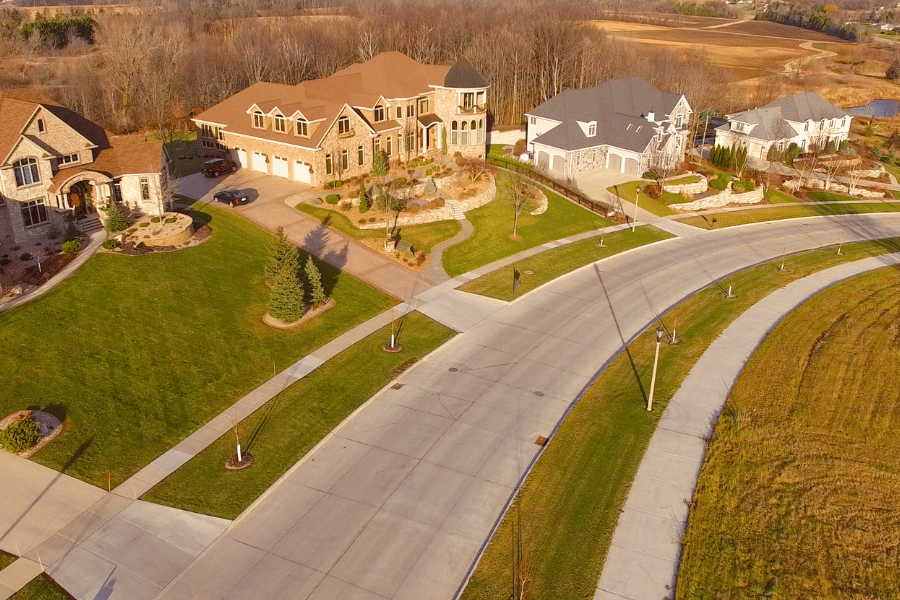
3. Average Income in Cary
Cary attracts highly educated professionals, which is reflected in above-average income levels throughout the community. The town benefits from its proximity to Research Triangle Park and the concentration of technology, pharmaceutical, and research companies in the area.
The average household income is $135,132, and the poverty rate is 5.28%. Cary is an incorporated town in Wake County and the third largest town in the Triangle, so it is located near a booming city with many opportunities.
The most popular occupations in Cary tend to be Software Engineer, Software Developer, IT director, and Project Manager, and these tend to have the highest salaries. Some of the top employers in the area are SAS Institute Inc., Xylem Inc., and Deutsche Bank.
Many Cary residents work in high-paying industries such as technology, healthcare, finance, and research and development. The town's educated workforce commands competitive salaries that help offset the higher cost of living.
The professional demographics of Cary residents, combined with dual-income households common in the area, create a community where higher living costs are generally sustainable for those who choose to live there.
4. Cost of Living in Raleigh
The cost of living in Raleigh, NC, is 3% lower than the national average. However, it's important to note that the cost of living can vary depending on several factors, such as your profession, personal preferences, average salary, and the real estate market.
Raleigh offers a more affordable cost of living compared to Cary while still providing access to urban amenities and job opportunities. Raleigh's housing expenses are 9% lower than the national average, with utility prices 10% lower than the national average and transportation expenses 8% lower than the national average.
The capital city provides excellent value for residents seeking urban conveniences without the premium pricing of smaller, more exclusive communities. Raleigh's diverse economy, ranging from government jobs to technology and healthcare, creates opportunities across various income levels.
Here are some categories broken down of the cost of living according to Payscale.
| Cost of Living Category | Average Price |
| Median Home Price | $474,330 |
| Median Rent Price | $1,425 a month |
| Gas | $2.97 |
| Gallon of Milk | $4.72 |
| Doctor's Visit | $164.92 |
5. Housing Cost in Raleigh
Raleigh's housing market offers more variety and affordability compared to Cary. As of mid-2025, the median home price in Raleigh is hovering around $450,000, with starter homes available in the low $300Ks, especially in up-and-coming neighborhoods.

Housing is the biggest expense, with median rent around $1,300 for a one-bedroom apartment and $350,000 for homes. This represents significant savings compared to Cary's housing costs, making homeownership more accessible for first-time buyers and those with moderate incomes.
The variety of neighborhoods in Raleigh means buyers can find options ranging from historic downtown lofts to suburban family homes, each with different price points. This diversity allows residents to find housing that fits their budget while still enjoying access to the city's amenities and job market.
6. Income in Raleigh
As part of the renowned Research Triangle, Raleigh is a hub for high-tech and research jobs. The presence of the University of North Carolina State also generates numerous education-related job opportunities.
Raleigh's diverse economy supports a wide range of income levels. The median income in Raleigh is $49,948 per person, while the median household income is $85,060. The median salary in Raleigh is $57,817, with high salaries earned by professionals in IT, medicine, finance, and biotechnology.
A single adult needs an average salary of about $102,752 to live comfortably in Raleigh. This figure accounts for housing, transportation, food, healthcare, and discretionary spending while maintaining a healthy savings rate.
The city's position as both a state capital and a major business center creates opportunities across various sectors, from government and education to technology and healthcare. This economic diversity helps maintain stable employment opportunities and competitive wages across different skill levels.

7. Is It Cheaper to Live in Cary or Raleigh?
Raleigh is definitely the more affordable option for most residents considering a move to the Triangle area. Here's the breakdown:
Housing Affordability
Raleigh offers significant savings in housing costs, with median home prices around $450,000 compared to Cary's $710,000+ average. Renters save approximately $99 per month ($1,300 vs. $1,399), and buyers can access a broader range of price points.
Overall Cost of Living
While both cities offer reasonable costs for utilities, transportation, and groceries, Raleigh's 9% below-national-average housing costs versus Cary's 23% above-national-average housing costs create a substantial difference in monthly expenses.
Income vs. Expenses
Although Cary residents often earn higher incomes, the cost differential is significant enough that most families will find better financial flexibility in Raleigh. The lower barrier to entry for homeownership in Raleigh makes it particularly attractive for first-time buyers and young professionals.
Choose Raleigh if you:
- Are a first-time homebuyer or working with a moderate budget
- Want access to urban amenities and diverse neighborhoods
- Prefer more housing options across various price points
- Value financial flexibility and lower overall living costs
Choose Cary if you:
- Have a higher household income and can comfortably afford the premium
- Prioritize top-rated schools and family-oriented amenities
- Prefer newer developments and master-planned communities
- Are willing to pay more for lower crime rates and a small-town feel
Methodology
Data was sourced from Payscale and the U.S. Census Bureau to determine whether Cary or Raleigh, NC, is a more affordable place to live.
FAQs
Why is Cary so expensive?
Cary is an expensive place to live in North Carolina due to its high quality of life, strong local economy, low crime rate, excellent schools, and access to Research Triangle Park.
How much money do I need to make to live comfortably in Cary?
To live comfortably in Cary, NC, a single adult would need to make around $70,000 per year for a comfortable lifestyle.
What is a livable salary in Raleigh, NC?
Many factors determine what is needed to live comfortably in an area, but in Raleigh, it is estimated that one needs to make about $102,752 to live comfortably.

Is It Cheaper to Live in Cary or Raleigh? - The Bottom Line
While Cary offers undeniable quality-of-life benefits, Raleigh provides better overall value for most families. The approximately $260,000 difference in median home prices, combined with lower overall living costs, makes Raleigh the more economical choice without sacrificing access to excellent schools, job opportunities, and amenities.
Both cities offer excellent investment potential and quality of life, but your budget and priorities should guide your decision. Consider consulting with a local real estate professional who can help you explore neighborhoods in both cities that align with your financial goals and lifestyle preferences.
As these areas continue to grow rapidly, more job opportunities, restaurants, schools, and prime real estate are being developed in and around them. Whether you are relocating to find your dream home, seeking an excellent education, a job, or retirement, each of these cities has something to offer everyone.
When moving to a new place, it's crucial to ensure that the place meets your needs, especially the cost of living. Understanding the cost of living in an area is an excellent way to determine whether you can afford it or not. Fortunately, these two cities have a lower cost of living compared to the national average.
Are you ready to explore a home in Raleigh or Cary? Contact Raleigh Realty today to schedule your personalized home tour and discover which Triangle community is right for your family and budget.

![11 Best Neighborhoods in Cary, NC [2026 Guide]](https://raleighrealty.com/rr-images/uploads/blogs/1743022247326-325438967-Beautiful Residential Home with Brick - Neighborhoods in Cary.png)

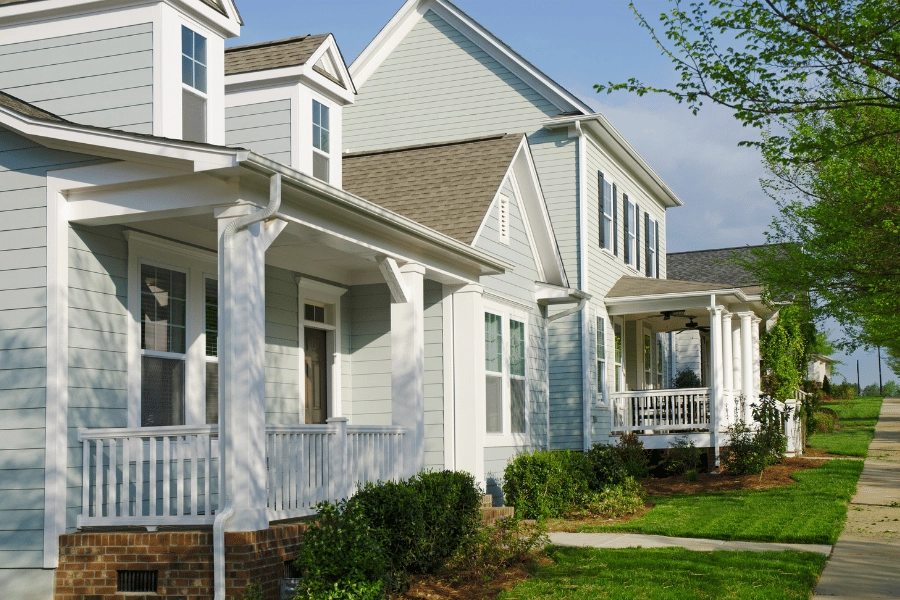
![What is a Good Salary to Live Comfortably in Raleigh, NC? [2025]](https://images.agentloft.com/rr-images/uploads/rr-migrated/blogs/April2024/dXWYgqEkqUT7aEGbDdk3.png)
